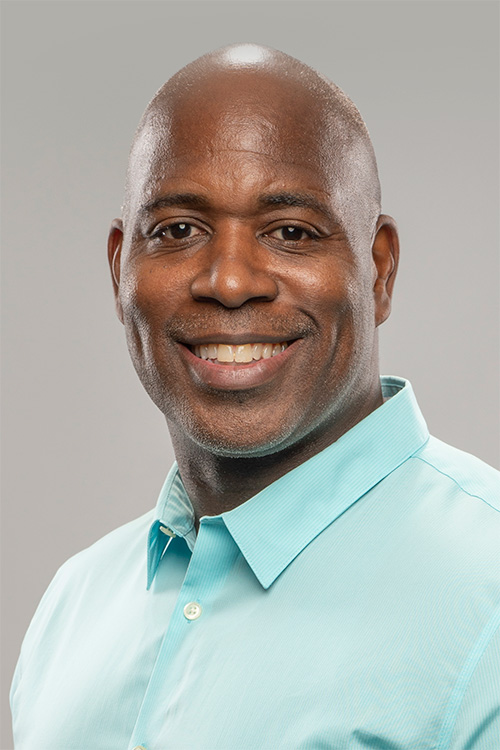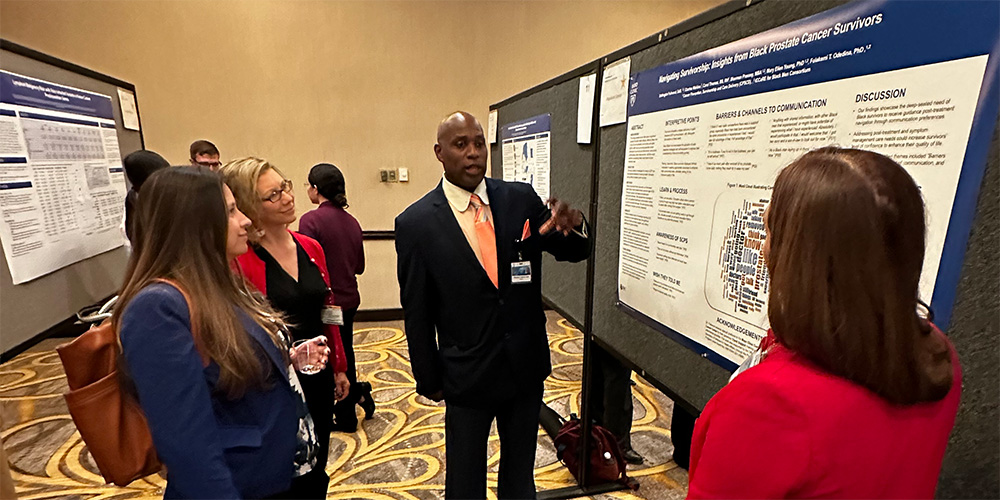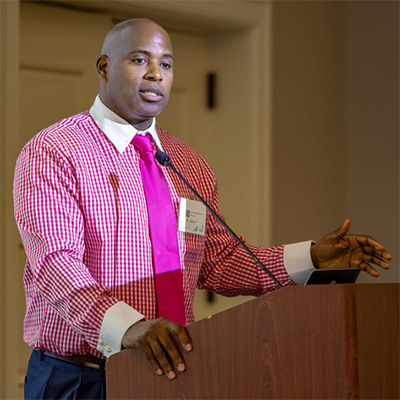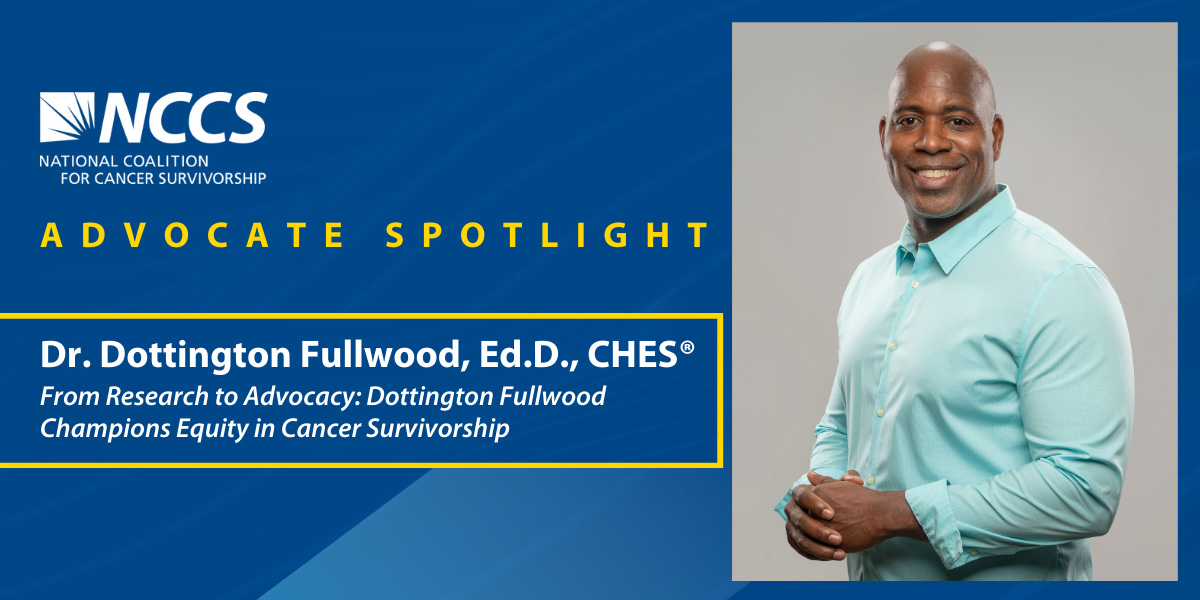From Research to Advocacy: Dottington Fullwood Champions Equity in Cancer Survivorship
 Advocate Spotlight: Dottington Fullwood, EdD, CHES
Advocate Spotlight: Dottington Fullwood, EdD, CHES
Dr. Dottington Fullwood’s connection to cancer began with a deeply personal and professional commitment to addressing health disparities within marginalized communities. He was first introduced to cancer survivorship research by his mentor, Dr. Folakemi T. Odedina, while working in the Cancer Health Equity Research Program (CHERP) lab at the Mayo Clinic. It was here that Dr. Fullwood’s focus shifted to the survivorship experience of ethnically diverse Black men with prostate cancer. This critical turning point in his career illuminated the glaring gaps in post-treatment care and the significant disparities that exist in survivorship care for marginalized populations.
With a background in health communication and behavioral science, Dr. Fullwood found his calling in improving survivorship care, using his expertise to develop meaningful solutions. He reflects, “Joining my mentor’s lab was the start of a journey. I knew I could make a meaningful impact in improving survivorship care, and my passion for this work has only grown since then.” Dr. Fullwood’s approach to both his professional and personal life reflects a deep sense of community and connection, values that are also evident in his advocacy work.
Dr. Fullwood’s introduction to advocacy came through his research, which began at the Mayo Clinic Comprehensive Cancer Center within the Inclusive Cancer Care Research Equity (iCCaRE) for Black Men Consortium. His work with AI-based interventions and social determinants of health highlighted the stark disparities in survivorship care, particularly among Black men with prostate cancer. This exposure ignited his passion for advocacy, as he recognized the critical need for systemic changes to improve post-treatment care. By partnering with community scientists, he’s been able to align his research with the real-world challenges faced by survivors. “The opportunity to directly improve post-treatment experiences through innovative research has been my driving force ever since,” he notes.

His advocacy work extends beyond research. Dr. Fullwood became involved with the National Coalition for Cancer Survivorship (NCCS) after attending the 2nd Annual Cancer Center Survivorship Research Forum at Stanford University, where NCCS CEO Shelley Fuld Nasso presented the findings of the State of Survivorship Survey. Dr. Fullwood contacted NCCS to request use of the survey. Wanting access to the data, Dr. Fullwood recalls knowing “the potential for this information to greatly enhance my research efforts in prostate cancer survivorship.” Once connected to NCCS, he learned about the Cancer Policy and Advocacy Team (CPAT). Recognizing the importance of survivor and caregiver involvement in shaping cancer policy, Dr. Fullwood began to engage with NCCS’s advocacy efforts.
Dr. Fullwood’s professional focus is on amplifying the voices of survivors, particularly those from marginalized communities, to ensure that no one is left out of the conversation on survivorship care. He is a firm believer that “without their voices, the data would be incomplete, and the solutions would fall short.” His perspective is a call to action for survivors and caregivers to engage in research, advocacy, and policy work. “Their involvement is like the soil that nurtures a plant – without it, growth and progress are impossible. They are the foundation upon which meaningful advancements in prostate cancer care and survivorship are built, ensuring no one is left behind.”
 Dr. Fullwood is currently leading research with Black and Afro-Latino prostate cancer survivors to better understand the challenges, experiences, and needs they face after completing treatment. Using video journaling, the study will give survivors the flexibility to share their stories in a way that feels most comfortable – whether through speaking or writing. He says, “My goal is to ensure their voices are heard and that their insights help improve prostate cancer survivorship care.”
Dr. Fullwood is currently leading research with Black and Afro-Latino prostate cancer survivors to better understand the challenges, experiences, and needs they face after completing treatment. Using video journaling, the study will give survivors the flexibility to share their stories in a way that feels most comfortable – whether through speaking or writing. He says, “My goal is to ensure their voices are heard and that their insights help improve prostate cancer survivorship care.”
Dr. Dottington Fullwood’s contributions to cancer survivorship research and advocacy are rooted in a deep commitment to social justice and equity. Through his continued work with NCCS and other institutions, he aims to create a future where Black prostate cancer survivors, and all survivors from diverse ethnic backgrounds, receive the care and support they deserve. His advocacy work is a testament to his vision of a more equitable healthcare system that addresses the unique needs of all survivors, ensuring that they thrive beyond treatment.
Learn more about NCCS’s CPAT program for advocates and join for free.




